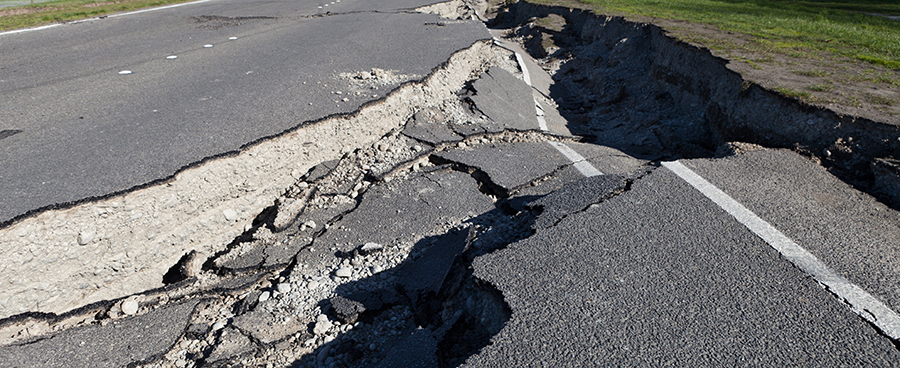Earthquakes strike suddenly, violently and without warning. Identifying potential hazards ahead of time and planning in advance can reduce the dangers of serious injury or loss of life from an earthquake.
Before an Earthquake
Make sure all family members know how to respond after an earthquake. Teach all family members how and when to turn off gas, electricity and water. Teach children how and when to call 911, police, or fire and which radio station to tune to for emergency information.
In case family members a re separated from one another during an earthquake (a real possibility during the day when adults are at work and children are at school), develop a plan for reuniting after the disaster. Ask an out-of-state relative or friend to serve as the “family contact.” After a disaster, it is often easier to call long distance. Make sure everyone in the family knows the name, address, and phone number of the contact person.

Precautions in Your Home
Install anchor bolts to better connect your home to its foundation.
Bolt or strap shelves, cupboards and bookcases to the wall.
Use flexible conduits and connectors for electrical and gas appliances.
Place large or heavy objects on lower shelves.
Store breakable items such as bottled foods, glass and china in low, closed cabinets with latches.
Hang heavy items such as pictures and mirrors away from beds, couches and other seating areas.
Brace overhead light fixtures.
Repair defective electrical wiring and leaky gas connections. These are potential fire risks.
Secure a water heater by strapping it to the wall studs and bolting it to the floor.
Repair any deep cracks in foundations or ceilings. Get expert advice if there are signs of structural defects.
Store weed killers, pesticides, and flammable products securely in closed cabinets with latches and on bottom shelves.
